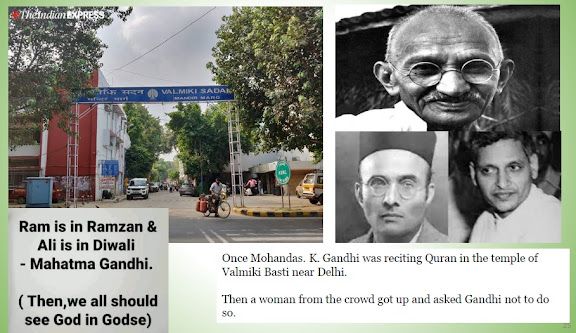WHITE FLAGS OF PEACE HOISTED AT LAC MILITARY CAMPS OF BOTH INDIA AND CHINA
The
Peace Accoord of LAC was being considered as a Great Diplamatic Victory for
Modi by the unbiased Political Analysts.
Bonhomie
Mahabalipuram Atmosphere of October 12, 2019 was enacted again, when Indian
Prime Minister Modi and Chinese Premier Xi Jinping met on the sidelines of the
BRICS SUMMIT in Kazan Russia on October 23, 2024.
A few days before, an agreement on patrolling
by their military along the Line of Actual Control (LAC) in eastern Ladakh was
signed, in a major breakthrough to end the over five years stand off.
It
seems in all probability the camaraderie seen five years ago in the backdrop of
the 7th century Panch Rath Manument in Mamallapuram between both India and
China leaders had not lost its warmness, when they had now met in BRICS SUMMIT
in Russia - with Putin, Russian President laying the platform for peace and
prosperity of both countries.
It
is a fact that just barely 8 months after Mahabalipuram Historic Friendly Meet
of Modi and Xi, the standoff on the LAC began with a skirmish between Indian
and Chinese troops on the banks of Pangong Lake in May 2020. A brutal clash at
Galwan Valley in June 2020 that killed 20 Indian soldiers and at least four
Chinese troops – the first fatalities on the LAC in 45 years – took bilateral
ties to the lowest point since the 1962 border war.
As
the face-off entered its fifth year, India maintained that the overall
relationship couldn’t be normalized without peace and tranquility on the
border.
Hence this agreement between two militarily powerful nations was a historic moment. Because both sides had reached an understanding on “observing the sanctity of the LAC”, and this “creates a basis” for returning to the peace and tranquility that existed before 2020. The agreement was announced just prior to the BRICS summit in Russia.
Agreement paved the way for the first official meeting
between the two leaders since the 2020 battle. The latest disengagement
agreement appears to involve the pull back of Indian and Chinese troops and
dismantlement of temporary infrastructure (e.g., tents and sheds) in two areas
(Depsang and Demchok) of the disputed border region near Ladakh.
India
which had been reported to have lost access to 65 patrolling points since
China’s 2020 military incursions, some of this access will now be restored.
Modi's
observations and Xi's response in this connection are worth quoting.
Modi:
q
At various points of time, people almost gave
up...We have always maintained that, on the one hand, we had to obviously do
the counter-deployments, but side by side, we have been negotiating...since
September 2020, when I met my counterpart, Mr Wang Yi, in Moscow.
q
3 Mutuals - Mutual Trust, Mutual Respect and Mutual
Sensitivity must be the basis of renewed India-China ties and priority should
be to ensure there is Peace and Stability along the border.
q
We assure full support for China's SCO presidency
next year.
q
Boundary-related matters must not be allowed to
disturb peace.
q
India-China relations are not just important for
both our people, but also very significan for peace, stability and progress of
the entire world.
Xi:
q
It is important for both sides to have more
communication and cooperation, properly handle differences and contribute to
promoting multiple polarization.
👇SUMMARY OF MODI-XI
BILATERAL TALKS:
🔸India and China agree to increase strategic communication
🔸 Border issues
shouldn’t be
allowed to escalate.
🔸Respect for mutual sensitivities & mutual concerns
🔸Officials to take follow-up action after bilateral
🔸 Regional & international issues of mutual concern
discussed, including BRICS, SCO
🔸India extended support for China’s SCO presidency
BRIEF NOTE ON STANDOFF OVER DOKLAM:
China
and India had a tense standoff over Doklam in 2017, when Indian troops
intervened to stop Chinese road construction in the disputed territory claimed
by Bhutan.
Indian
troops intervened to block the path of Chinese soldiers engaged in building
road-works on the Doklam plateau of Bhutan’s territory that Beijing laid claim.
Beijing
responded by closing access to Indian pilgrims seeking to proceed through the
Nathu La pass on to Kailash-Mansarovar.
Doklam
plateau is a 269-sq km plateau in Bhutan, which overlooks the strategic Chumbi
Valley.
The
plateau is claimed by China.
Bhutan has a written agreement with China that pending the final resolution of the boundary issue, Indian Army regards the Doklam plain as strategically crucial because it opens a path to the Siliguri Corridor which links the northeast to the rest of India.










Comments